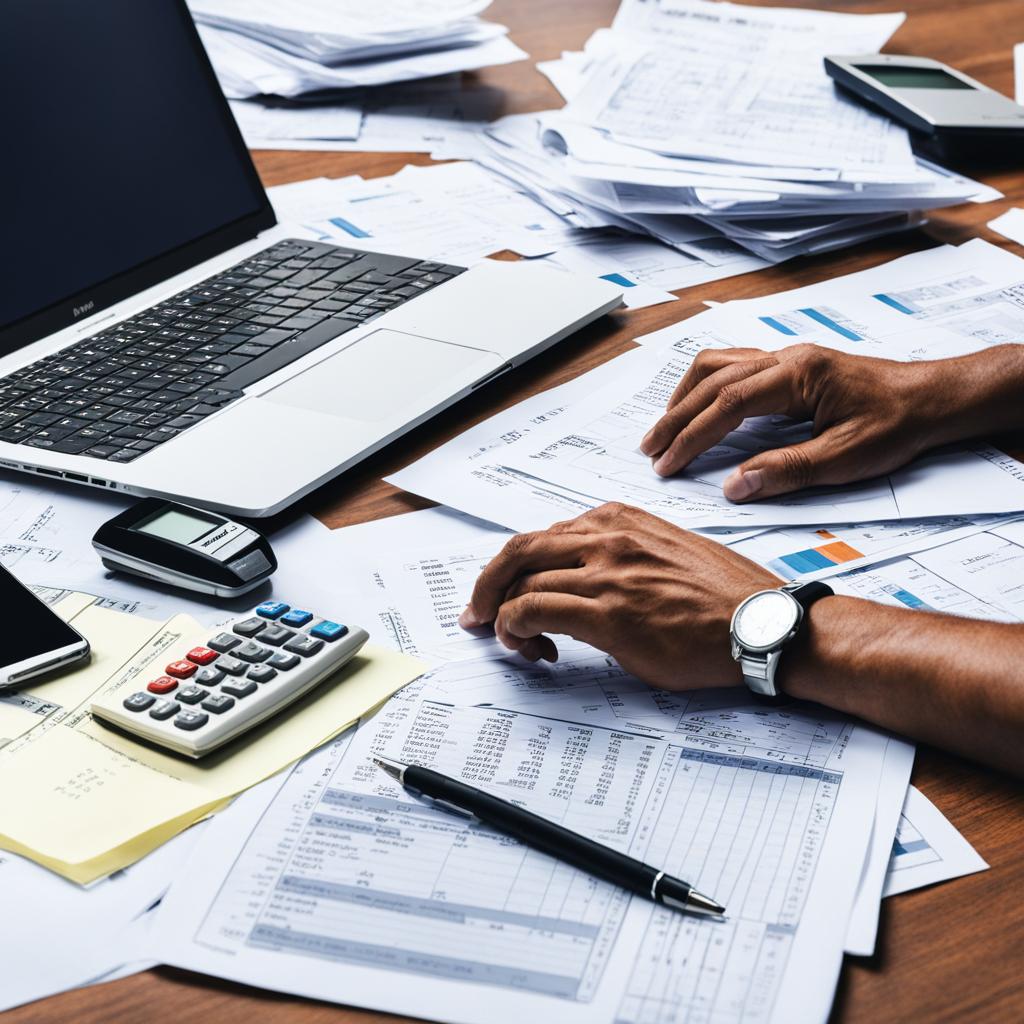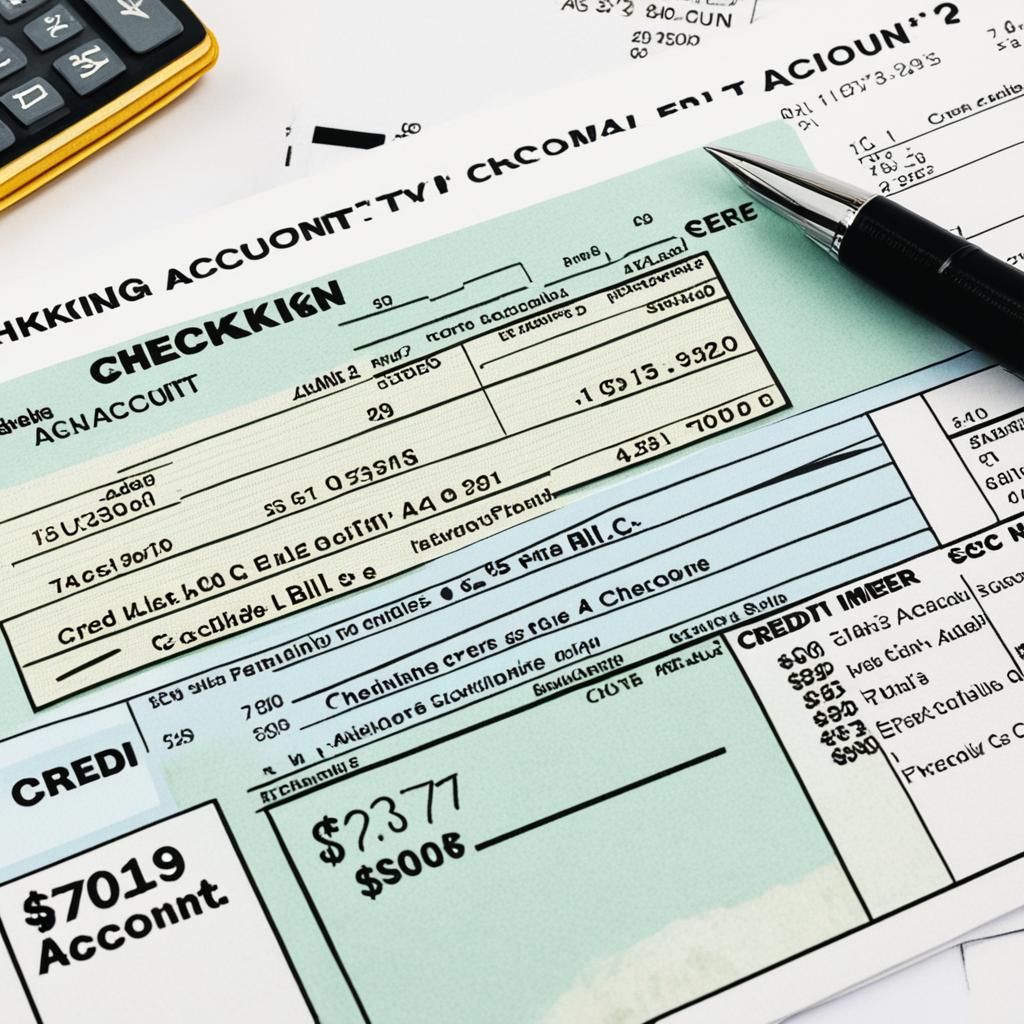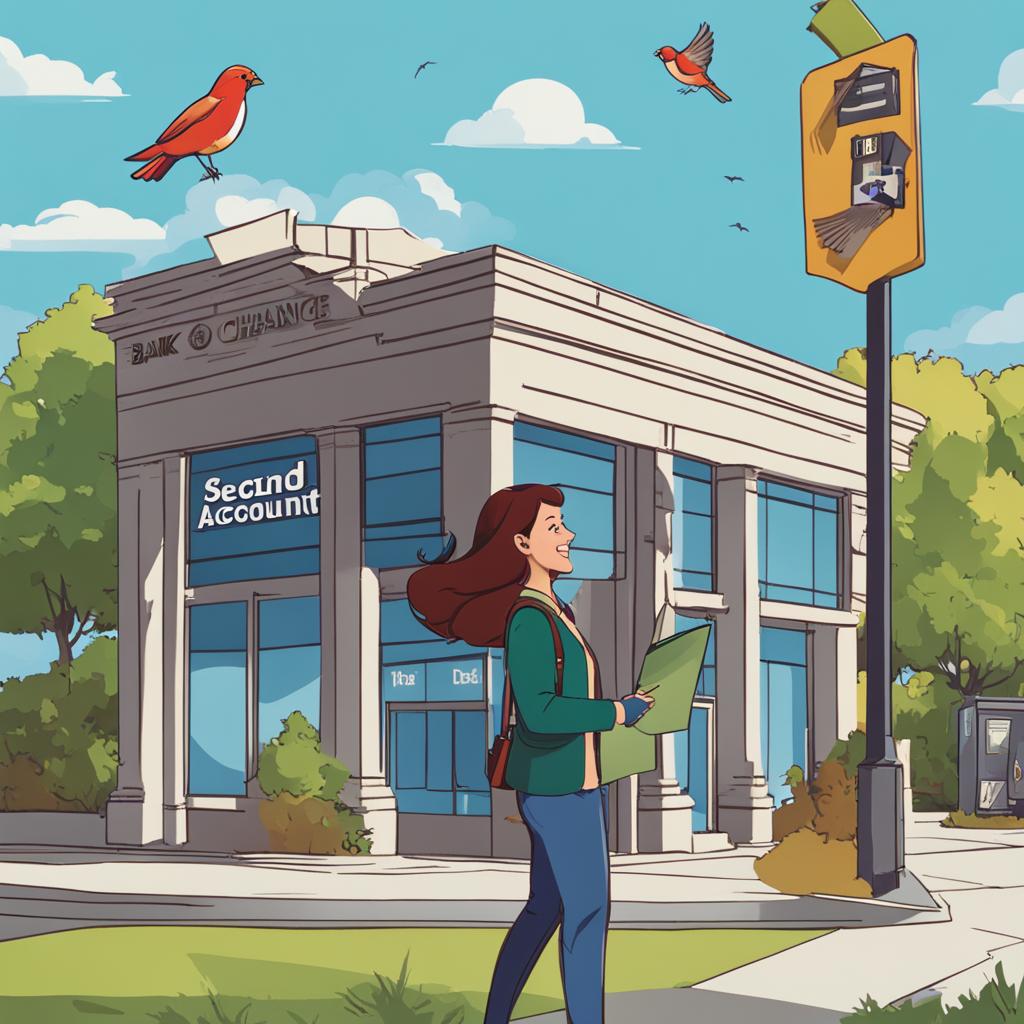Hello there! Today, I want to talk to you about checking accounts and how they work. If you’ve ever wondered what a checking account is or why you need one, you’ve come to the right place. Let’s dive in!
A checking account is a type of deposit account that you can open at a bank or credit union. It’s designed for everyday use, allowing you to easily deposit and withdraw money for your daily transactions. Unlike a savings account, which is meant for long-term savings, a checking account is more about giving you quick access to your money.
So, how does a checking account work? Well, you can deposit money into your account through various methods like direct deposit, mobile check deposit, ATM deposits, and more. Once the money is in your account, you can use it for making purchases, paying bills, and transferring funds to others.
A checking account offers you flexibility in managing your money. You can write paper checks, use debit cards, make ACH transfers, wire transfers, and even person-to-person payments. With so many options, it’s easy to move your money and make payments in a way that suits your needs.
It’s worth noting that there are different types of checking accounts available to cater to different needs. These include standard checking accounts, interest checking accounts, rewards checking accounts, student and teen checking accounts, senior checking accounts, second chance checking accounts, and checkless checking accounts.
When choosing a checking account, there are a few things to consider. Look at the monthly service fees, minimum balance requirements, and the services offered like direct deposit and overdraft protection. By finding the right checking account for you, you can simplify your financial transactions and keep your money easily accessible.
Key Takeaways:
- A checking account is a type of deposit account that offers easy access to your money for daily transactions.
- You can deposit money through various methods such as direct deposit, mobile check deposit, and ATM deposits.
- Checking accounts allow you to make purchases, pay bills, and transfer funds using paper checks, debit cards, ACH transfers, and more.
- There are different types of checking accounts available, so consider factors like fees, minimum balance requirements, and available services when choosing one.
- Managing a checking account helps you keep your finances organized, track expenses, and monitor spending habits.
Why Do You Need a Checking Account?
A checking account provides numerous advantages that can greatly benefit your finances. Let’s take a closer look at why having a checking account is essential for managing your money effectively.
1. Safe and Secure Money Storage
One of the primary benefits of a checking account is that it offers a safe and secure place to keep your money. Instead of keeping cash at home where it can be lost or stolen, a checking account provides a protected environment for your funds.
2. Easy Bill Payments and Purchases
With a checking account, you can easily pay your bills and make purchases. By writing checks, using a debit card, or making electronic payments, you can conveniently handle your financial obligations in a hassle-free manner.
“A checking account allows me to effortlessly pay my bills and make purchases, ensuring that I stay on top of my financial responsibilities.”
3. Seamless Fund Transfers
A checking account enables you to transfer funds to others effortlessly. Whether you need to send money to a family member or split expenses with friends, a checking account provides a convenient way to move funds between accounts quickly and securely.
4. Automatic Payments and Direct Deposit
By setting up automatic payments and direct deposit, you can simplify your financial management. Automatic payments ensure that your bills are paid on time, while direct deposit allows your income to be deposited directly into your checking account, saving you time and effort.
5. Effective Financial Organization
Managing a checking account helps you stay organized with your finances. By regularly reviewing your transactions and tracking your expenses, you can gain valuable insights into your spending habits and make informed decisions to achieve your financial goals.
Having a checking account allows me to monitor my expenses, ensuring that I am aware of how I spend my money and helping me make better financial choices.
6. Online and Mobile Banking Services
Most checking accounts today offer online and mobile banking services. These convenient features allow you to access your account from anywhere, check your balance, review transactions, and even deposit checks using your smartphone.
7. Increased Financial Control
By effectively managing a checking account, you gain greater control over your financial life. You can proactively monitor your account balance, avoid overdrafts, and ensure that you have enough funds to cover your expenses, which ultimately contributes to your overall financial well-being.
Overall, a checking account offers a wide range of benefits that simplify your daily financial transactions and provide peace of mind. From secure money storage to seamless fund transfers and effective financial organization, managing a checking account is essential for achieving financial stability and success.
Types of Checking Accounts
When it comes to choosing a checking account, there are various options available to suit different financial needs. Let’s explore the different types of checking accounts:
1. Standard Checking
A standard checking account is a basic account that allows you to pay bills, write checks, and make purchases with a debit card. It provides essential features for everyday banking transactions.
2. Interest Checking
Interest checking accounts give you the opportunity to earn interest on your balance. While the interest rates are typically lower than savings accounts, it’s a great way to make your money work for you.
3. Rewards Checking
With rewards checking accounts, you can earn rewards such as cash back or points for making purchases or scheduling direct deposits. It’s a fantastic way to get some extra benefits while managing your finances.
4. Student and Teen Checking
Designed specifically for students, these checking accounts often come with no or low fees. They are a great way for young individuals to start building their financial independence and get accustomed to managing money.
5. Senior Checking
Senior checking accounts offer benefits tailored to older banking clients. These benefits can include free checks, higher interest rates, and specialized services to meet the unique needs of seniors.
6. Second Chance Checking
For individuals who have had difficulty managing a checking account in the past, second chance checking accounts provide an opportunity to rebuild their banking history. These accounts may have more restrictions and higher fees but can help individuals get back on track.
7. Checkless Checking
Checkless checking accounts are designed for those who prefer to rely on debit cards, mobile banking, or online transactions instead of writing paper checks. They offer a convenient and streamlined approach to managing finances.
By understanding the different types of checking accounts, you can choose the one that best suits your financial goals and lifestyle. Whether you’re looking for a simple and straightforward account or one that offers added benefits, there’s a checking account out there to meet your needs.
Next, let’s explore how to open a checking account and the important factors to consider during the process.
How to Open a Checking Account
Opening a checking account is a straightforward process that can be done online or at a bank branch. To open an account, you will need to provide personal information such as your name, address, and social security number.
Some banks may run a soft credit inquiry, but it won’t impact your credit score. It’s a standard procedure to verify your identity and ensure that you are eligible to open an account.
Most banks will also require an initial deposit to activate your account. The amount can vary depending on the bank, but it can be as low as $1 or may require a larger deposit.
Opening a checking account is a breeze. Whether you prefer the convenience of applying online or the personalized service at a bank branch, the process is designed to be quick and hassle-free. Once you’ve provided the necessary information and completed the required steps, you’ll be on your way to managing your finances with ease.
It’s important to ensure that the checking account you open is insured by the Federal Deposit Insurance Corporation (FDIC) for banks or the National Credit Union Administration (NCUA) for credit unions. This insurance protects your funds in case the financial institution fails.
Once your account is open, you will receive a debit card, which you can use to make purchases and withdraw cash from ATMs. You can also set up other convenient services, like online and mobile banking, to access and manage your account anytime, anywhere.
Benefits of Opening a Checking Account
Opening a checking account offers numerous benefits:
- Convenient access to your money: With a checking account, you can easily deposit and withdraw funds for daily expenses.
- Secure storage of your money: Keeping your money in a checking account is safer than storing it at home.
- Convenient payment options: You can pay bills, make purchases, and transfer funds electronically using a checking account.
- Enhanced financial management: Tracking your expenses and managing your finances becomes easier with a checking account.
- Access to additional banking services: Many checking accounts offer features like direct deposit, overdraft protection, and online banking.
Opening a checking account is a crucial step towards efficient and organized money management. It provides you with the tools and resources to handle your daily financial transactions with ease.
Comparing Different Checking Accounts
| Checking Account Type | Features |
|---|---|
| Standard Checking | – Allows basic transactions, such as paying bills and using a debit card – May have monthly service fees and minimum balance requirements |
| Interest Checking | – Offers the opportunity to earn interest on your balance – Typically requires a higher minimum balance to avoid fees |
| Rewards Checking | – Provides rewards, such as cash back or points, for specific transactions – May have requirements, such as direct deposit or a certain number of transactions |
| Student and Teen Checking | – Designed for students and young adults – May have lower fees and tailored benefits for this demographic group |
| Senior Checking | – Offers benefits targeted at older banking clients, such as higher interest rates or free checks |
| Second Chance Checking | – Available for individuals with previous checking account issues – May have more restrictions and higher fees |
| Checkless Checking | – Does not allow check writing – Relies on debit cards, mobile banking, and online transactions |
As shown in the table, there are various types of checking accounts available, each catering to different needs and preferences. When choosing a checking account, consider the associated fees, services, and benefits to find the one that best suits your financial goals and lifestyle.
Understanding Checking Account Fees
When opening a checking account, it’s important to understand the various fees that may be associated with it. Let’s take a closer look at two common fees: the monthly service fee and the overdraft fee.
Monthly Service Fee
Many banks charge a monthly service fee to maintain your checking account. This fee can vary depending on the bank and the type of account you have. It’s essential to review a bank’s fee schedule before opening an account to understand the potential costs.
To avoid the monthly service fee, some banks offer ways to waive it. You may need to maintain a minimum balance in your account or set up direct deposit. By meeting these requirements, you can often enjoy fee-free checking.
Overdraft Fee
An overdraft occurs when you spend more money from your checking account than you actually have available. It can happen accidentally if you forget to record a transaction or if a scheduled payment goes through before a deposit is made.
If you overdraft your account, the bank will charge you an overdraft fee. This fee can be quite costly, ranging from $30 to $35 per transaction. It’s essential to keep track of your account balance and avoid spending more than you have to prevent these fees.
Quote: “Understanding the fees associated with your checking account can help you avoid unnecessary charges and save money in the long run.” – Sarah Thompson, Personal Finance Expert
Overdraft Protection
To protect yourself from overdraft fees, you can opt for overdraft protection. This service allows you to link your checking account to a savings account or a line of credit. If you overdraw your checking account, the bank will automatically transfer funds from the linked account to cover the negative balance. This can help you avoid fees and the inconvenience of declined transactions.
It’s important to note that while overdraft protection can save you from fees, there may still be a transfer or service fee associated with using this service. It’s crucial to review the terms and conditions with your bank to understand the costs involved.
Quote: “Overdraft protection is like having a safety net for your checking account. It provides an extra layer of security and peace of mind.” – Brian Johnson, Financial Advisor
Comparing Checking Account Fees
When choosing a checking account, it’s essential to consider the fees associated with each option. Here’s a table comparing the monthly service fees and overdraft fees of three popular banks:
| Bank | Monthly Service Fee | Overdraft Fee |
|---|---|---|
| Bank A | $10 | $35 |
| Bank B | $5 | $30 |
| Bank C | $7 | $35 |
Remember, these fees can vary depending on your specific account type and any additional services you may choose. Take the time to compare the fee structures of different banks to find the best checking account option for your needs.
By understanding checking account fees and their potential impact on your finances, you can make informed decisions and choose a checking account that aligns with your needs and budget.
Benefits of Direct Deposit and Other Services
Direct deposit is one of the valuable services offered by checking accounts. It provides a convenient and efficient way to receive your paycheck or other funds directly into your account. With direct deposit, you can eliminate the hassle of depositing physical checks and gain immediate access to your money. It’s a time-saving solution that ensures your funds are securely and promptly deposited.
But direct deposit is just one of the many services offered by checking accounts. Banks also provide additional features that enhance the functionality and convenience of your account. Let’s explore some of these services:
- Wire transfers: Wire transfers allow you to securely transfer funds from one account to another. Whether you need to send money to a friend or relative, or make payments for goods and services, wire transfers provide a quick and reliable solution.
- ATMs: Automated Teller Machines (ATMs) offer convenient access to cash and account information. With a checking account, you can withdraw money, check your balance, and even deposit cash or checks using an ATM.
- Debit cards: Debit cards are linked to your checking account and can be used for purchases at various merchants. You can also withdraw cash from ATMs using your debit card. It’s a convenient alternative to carrying cash and provides an easy way to manage your expenses.
“The convenience that comes with these services makes managing your finances effortless, providing peace of mind and making your banking experience more enjoyable.”
These additional services complement the functionality of your checking account, making it a versatile tool for your financial needs. Whether you need to transfer money, access cash, or make purchases, these services offer the convenience and ease you deserve.

Now that you understand the benefits of direct deposit and other checking account services, you can take full advantage of these features to simplify your financial transactions and enhance your banking experience.
The Importance of Managing Your Checking Account
Managing your checking account is crucial for maintaining control of your finances. It involves tracking your expenses, monitoring your spending habits, and ensuring that you have enough funds to cover your bills and daily expenses.
By regularly reviewing your account activity and statements, you can identify any unauthorized transactions or errors, protecting your financial security. Utilizing budgeting tools and apps can make it easier to track your spending and stick to a financial plan, helping you achieve your financial goals.
Tracking expenses allows you to understand where your money is going and identify areas where you can cut back or save. It provides valuable insights into your spending habits and helps you make informed decisions about your finances.
“By effectively managing your checking account, you can avoid overdrafts, late fees, and other financial problems that can derail your financial stability.”
Monitoring your spending habits is key to maintaining a healthy financial lifestyle. By keeping a close eye on your expenses, you can identify patterns of excessive spending or unnecessary purchases. This awareness gives you the power to adjust your habits and make wiser financial choices, ultimately saving you money in the long run.
The Benefits of Effective Checking Account Management:
1. Avoiding overdrafts and late fees
2. Understanding your spending habits
3. Staying within your budget
4. Identifying areas for cost-cutting
5. Saving money for future goals
To illustrate the importance of managing your checking account effectively, consider the following scenario:
| Scenario | Consequences |
|---|---|
| Failure to track expenses | Difficulty in balancing monthly budget |
| Failure to monitor spending habits | Accumulation of unnecessary debt |
| Failure to ensure sufficient funds | Overdraft fees and potential financial strain |
By managing your checking account effectively, you can avoid these negative outcomes and maintain financial stability.

In summary, managing your checking account is not only about keeping track of your financial transactions. It is about understanding your spending patterns, making informed decisions, and building a solid financial foundation. By taking control of your checking account, you can improve your financial wellness and achieve your long-term financial goals.
Tips for Choosing the Right Checking Account
When it comes to choosing a checking account, it’s important to consider several factors that will help you make an informed decision. By taking the time to assess your needs and compare options, you can select a checking account that aligns with your financial goals and lifestyle.
1. Determine the Type of Bank
First, decide whether you prefer a brick-and-mortar bank or an online bank. Brick-and-mortar banks offer in-person services, such as teller assistance and access to physical branches. On the other hand, online banks often have lower fees and may provide added convenience through digital features like mobile banking.
2. Consider Account Fees
Take a close look at the fees associated with each checking account option. Monthly maintenance fees and minimum balance requirements are common charges that can vary between banks. Some accounts waive these fees if certain criteria are met, such as maintaining a minimum balance or setting up direct deposit. Keep in mind that excessive fees can significantly impact your overall banking experience.
3. Evaluate Available Features
Examine the features offered by each checking account. Online and mobile banking services can provide convenience and easy access to your account. Check for ATM access and the number of fee-free ATM transactions allowed per month. Overdraft protection, which helps prevent you from overdrawing your account, is also a valuable feature to consider.
4. Assess Customer Service
The quality of customer service can play a significant role in your banking experience. Research the bank’s reputation for customer support and read reviews from other customers. Look for a bank that offers responsive and helpful assistance to ensure you receive the support you need when you have questions or concerns about your account.
5. Compare Bank’s Reputation and Stability
Consider the bank’s reputation and stability in the industry. Evaluate factors such as the bank’s financial strength, its history, and any regulatory issues. Choosing a well-established and reputable bank can provide peace of mind knowing that your money is safe and the institution is secure.
6. Seek Recommendations and Advice
Don’t hesitate to seek recommendations and advice from family, friends, or trusted financial professionals. They may be able to share their own experiences and offer valuable insights that can help you make a more informed decision.
By considering these factors, you can choose a checking account that suits your needs, offers the right features, and provides a positive banking experience. Remember, selecting the right checking account is an important step toward financial stability and convenience.
The Difference Between Checking and Savings Accounts
While both checking and savings accounts serve as ways to hold money at a bank, there are distinct differences between the two.
Checking accounts are designed for convenient daily transactions, with features like debit cards and unlimited withdrawals. It is the most common type of account used for day-to-day financial activities such as paying bills, making purchases, and transferring money. These accounts typically offer a lower interest rate, if any at all, compared to savings accounts.
Savings accounts, on the other hand, are meant for long-term savings goals. They encourage individuals to set aside money for future needs or emergencies by offering higher interest rates. However, savings accounts usually have limitations on the number of withdrawals you can make per month to promote saving habits and discourage frequent access to the funds.
Key Differences:
| Checking Account | Savings Account |
|---|---|
| Designed for daily transactions. | Meant for long-term savings. |
| Offers features like debit cards and unlimited withdrawals. | May have limitations on the number of withdrawals per month. |
| Tends to have lower interest rates or no interest at all. | Typically offers higher interest rates than checking accounts. |
It’s important to use each account for its intended purpose to maximize their benefits. By utilizing a checking account for day-to-day expenses and a savings account for long-term savings, you can effectively manage your finances and achieve your financial goals.
How Checking Accounts Impact Your Credit Score
Unlike credit cards, checking accounts do not directly impact your credit score. Writing checks, making deposits, and managing your checking account responsibly are not reported to the credit bureaus. However, it’s important to understand the indirect ways in which checking accounts can have an impact on your credit score.
If you overdraw your checking account and fail to repay the overdraft amount, it may be sent to collections. This can negatively affect your credit score. It’s crucial to monitor your account balance and ensure you have sufficient funds to cover your expenses.
Additionally, some banks may perform a soft credit inquiry when opening a checking account. This inquiry does not impact your credit score, but it allows the bank to verify your identity and assess your financial history. It’s important to note that soft inquiries do not have a negative impact on your credit score.
The Relationship Between Checking Accounts and Credit Scores
It’s essential to maintain responsible financial behavior to avoid any negative impact on your credit score. While checking accounts do not have a direct influence on your credit score, they can indirectly affect it through overdraft situations or inquiries by banks.
By keeping track of your account balance, avoiding overdrafts, and managing your checking account responsibly, you can maintain a positive financial standing and protect your credit score.
| Actions | Impact on Credit Score |
|---|---|
| Writing checks and making deposits | No direct impact |
| Overdrawing and not repaying overdrafts | Indirect negative impact if sent to collections |
| Soft credit inquiries for account opening | No impact on credit score |
While maintaining a positive credit score is important, it’s equally essential to manage your checking account responsibly to avoid any potential negative consequences. By doing so, you can maintain a healthy financial profile and pave the way for future financial success.

What to Do If You Get Denied a Checking Account
If you have been denied a checking account, there are steps you can take to improve your chances of getting approved in the future. Many banks offer second chance checking accounts specifically designed for individuals who have had issues managing a checking account in the past. While these accounts may come with more restrictions and higher fees, they can give you an opportunity to rebuild your banking history and demonstrate responsible financial behavior.
Another important step to take is to request a free checking account report from agencies like Certegy and ChexSystems. These reports can help you identify any inaccuracies or negative information that may be affecting your ability to get approved for a checking account. By addressing any issues or errors, you can increase your chances of securing a checking account.
| Steps to Increase Your Chances of Getting Approved for a Checking Account |
|---|
| 1. Research banks that offer second chance checking accounts. |
| 2. Compare account requirements, fees, and restrictions. |
| 3. Gather necessary documents and identification. |
| 4. Apply for a second chance checking account. |
| 5. Review your checking account report for inaccuracies. |
| 6. Dispute any errors with the reporting agencies. |
| 7. Demonstrate responsible financial behavior by managing your accounts properly and paying bills on time. |
By taking these steps, you can improve your chances of getting approved for a checking account and gain access to the many benefits they offer. It’s important to remember that being denied a checking account doesn’t have to be the end of the road. With determination and responsible financial practices, you can rebuild your banking history and secure a checking account that suits your needs.

Quote:
“Sometimes, a little persistence and effort can lead to a second chance.”
The Role of Checking Accounts in Personal Finance
Checking accounts play a crucial role in personal finance. They serve as a central hub for managing day-to-day finances, providing the convenience and flexibility necessary to navigate the world of money with ease and confidence. By opening a checking account, individuals gain access to an array of financial services that streamline money management and enhance financial control.
One of the primary functions of a checking account is to serve as a repository for income. With a checking account, individuals can conveniently receive direct deposits of their salaries, wages, or other sources of income. This enables quick access to funds, eliminating the need to cash physical checks or wait for funds to clear.
Additionally, checking accounts empower individuals to efficiently pay bills and make purchases. By depositing funds into a checking account, users can easily and securely transfer money to pay utilities, credit card bills, rent, and other expenses. Furthermore, checking accounts provide a variety of payment methods, including debit cards, online bill pay, and electronic transfers, ensuring that individuals have multiple options to conveniently manage their financial obligations.
Another vital aspect of checking accounts is their role in facilitating the tracking of expenses and staying organized. With regular account activity, individuals can monitor their spending habits, track where their money goes, and identify areas where expenses can be optimized or reduced. By keeping funds in a checking account, individuals can easily review their transaction history, categorize spending, and gain insights into their financial habits.
Checking accounts also offer essential financial services that make money management a breeze. The convenience of direct deposit allows individuals to seamlessly receive income without the hassle of physical checks or delays in accessing funds. Online banking platforms provide 24/7 access to accounts, empowering individuals to monitor transactions, check balances, and transfer funds at their convenience. Moreover, many checking accounts offer online bill pay services, which streamline the bill payment process by allowing individuals to schedule automatic payments, eliminating the risk of late fees.
Overall, checking accounts hold a pivotal position in personal finance. They provide the foundation for receiving income, paying bills, making purchases, and managing day-to-day financial activities. By keeping money in a checking account, individuals gain the necessary tools and resources to stay organized, track expenses, and confidently navigate their financial journey.
Checking Accounts and Financial Security
When it comes to ensuring financial security, keeping your money in a checking account is a wise choice. Unlike keeping cash at home, checking accounts offer various measures to protect your funds and provide peace of mind.
One of the key advantages of checking accounts is that they are typically protected by insurance. The Federal Deposit Insurance Corporation (FDIC) or the National Credit Union Administration (NCUA) ensures that your funds are safe up to a specific limit. In the event that the bank or credit union fails, your money remains secure.
Moreover, checking accounts come with built-in fraud protection measures. Many banks offer zero-liability policies for unauthorized transactions, protecting you from financial losses due to fraudulent activities. This means that if something unexpected happens, you won’t be held responsible for unauthorized charges or transactions.
By utilizing the security features of a checking account, you can rest assured that your hard-earned money is in safe hands.
Whether it’s the insurance coverage provided by the FDIC or NCUA, or the fraud protection measures, checking accounts offer a level of financial security that cash simply cannot provide. So instead of keeping your money under the mattress or in a cookie jar, consider the benefits of keeping it in a checking account.
The Future of Checking Accounts
As technology advances and consumer preferences change, the future of checking accounts is expected to evolve. One of the emerging trends is the increased prevalence of mobile banking and digital payment solutions. These technologies offer convenient ways for account holders to access and manage their checking accounts right from their mobile devices. With just a few taps, users can check their balances, transfer funds, and make payments, providing a seamless banking experience on the go.
Mobile banking and digital payment solutions are revolutionizing how people interact with their checking accounts. From making quick payments at a local store to splitting bills with friends, the future of checking accounts is all about accessibility and convenience.
In addition to mobile banking, financial institutions are likely to introduce enhanced security measures to protect account holders’ data and funds. Biometric authentication, such as fingerprint or facial recognition, can provide an extra layer of security when accessing checking accounts. This technology ensures that only authorized individuals can access account information, reducing the risk of fraud or identity theft.
By leveraging biometric authentication, checking accounts can offer a higher level of security, giving customers peace of mind knowing that their financial information is protected.
Furthermore, the integration of checking accounts with other financial tools and services is expected to expand. This integration will create a comprehensive financial ecosystem where account holders can seamlessly manage their finances, access investment opportunities, and set financial goals all in one place. By combining various financial services, checking accounts can become a central hub for individuals to monitor their overall financial health.
The future of checking accounts lies in their ability to integrate with other financial tools and services, forming a holistic approach to personal finance management.
The evolving landscape of checking accounts is driven by a desire for greater flexibility and convenience. As technology continues to advance and customer needs change, financial institutions will adapt their offerings to meet these evolving demands. The future of checking accounts is rooted in providing customers with seamless access, enhanced security, and comprehensive financial solutions.
Evolving Trends in Checking Accounts:
- Mobile banking and digital payment solutions
- Enhanced security measures like biometric authentication
- Integration with other financial tools and services
With these advancements, checking accounts are poised to continue serving as a vital tool for everyday financial management, keeping pace with the ever-changing needs of account holders.
Conclusion
In conclusion, checking accounts are indispensable for efficiently managing your day-to-day finances. These accounts offer a wide range of benefits, allowing you to effortlessly deposit and withdraw funds, pay bills, make purchases, and utilize services like direct deposit and mobile banking. With the availability of various types of checking accounts, you can select the one that best meets your financial requirements and preferences.
By choosing the right checking account and effectively managing it, you can streamline your everyday financial transactions and maintain control over your money. Whether you opt for a standard checking account, interest checking account, rewards checking account, or one tailored to your specific needs like student or senior checking, these accounts serve as central hubs for your financial activities.
Ensure that you consider factors such as monthly service fees, minimum balance requirements, and available services when selecting a checking account. By doing so, you can maximize the benefits of your account, keep your finances organized, and enjoy the convenience of modern banking services.
FAQ
What is a Checking Account and How Does It Work?
A checking account is a type of deposit account that allows you to easily deposit and withdraw money for daily transactions. It works by providing a safe and secure place to keep your money, and you can access it through various methods such as checks, debit cards, online banking, and mobile banking.
Why Do You Need a Checking Account?
Having a checking account offers several benefits, including the ability to pay bills, make purchases, and transfer funds easily. It also helps you track your expenses, monitor your spending habits, and keep your finances organized. Additionally, many checking accounts provide online and mobile banking services for convenient access and management of your account.
What are the Types of Checking Accounts?
There are different types of checking accounts available to suit various needs. These include standard checking, interest checking, rewards checking, student and teen checking, senior checking, second chance checking, and checkless checking.
How to Open a Checking Account?
To open a checking account, you can apply online or visit a bank branch. You will need to provide personal information, such as your name, address, and social security number. Some banks may require an initial deposit to open the account. Once your account is open, you will receive a debit card and can start managing your finances.
What are the Common Checking Account Fees?
Common checking account fees include a monthly service fee and an overdraft fee. Some banks may also charge fees for certain transactions or additional services. It’s important to review the fee schedule of a bank before opening a checking account to understand the potential costs.
What are the Benefits of Direct Deposit and Other Services?
Direct deposit allows your paycheck or other funds to be automatically deposited into your checking account, saving you time and effort. Other services offered by checking accounts include wire transfers, ATM access, and debit cards, which enhance the functionality and convenience of managing your finances.
Why is Managing Your Checking Account Important?
Managing your checking account is crucial for maintaining control of your finances. It involves tracking your expenses, monitoring your spending habits, and ensuring that you have enough funds to cover your bills and daily expenses. By effectively managing your checking account, you can avoid overdrafts, late fees, and other financial problems.
What Factors Should I Consider When Choosing a Checking Account?
When choosing a checking account, consider factors such as monthly service fees, minimum balance requirements, available services like direct deposit and overdraft protection, and the bank’s customer service reputation. It’s important to select an account that aligns with your financial needs and preferences.
What is the Difference Between Checking and Savings Accounts?
Checking accounts are designed for daily transactions and easy access to funds, while savings accounts are meant for long-term savings and typically offer higher interest rates. Savings accounts may also have limitations on the number of withdrawals you can make per month to encourage saving.
How do Checking Accounts Impact Your Credit Score?
Checking accounts do not directly impact your credit score. However, if you overdraw your checking account and fail to repay the overdraft amount, it may be sent to collections and indirectly affect your credit score. It’s important to maintain responsible financial behavior to avoid any negative impact on your credit score.
What Should I Do If I Get Denied a Checking Account?
If you get denied a checking account, you have options available. Some banks offer second chance checking accounts specifically for individuals who have had difficulty managing a checking account in the past. You can also request a free checking account report from agencies like Certegy and ChexSystems to check for any inaccuracies and address any issues before reapplying.
What is the Role of Checking Accounts in Personal Finance?
Checking accounts play a crucial role in personal finance by providing a central hub for managing your day-to-day finances. They allow you to receive income, pay bills, make purchases, and transfer funds conveniently. By keeping your money in a checking account, you can easily track expenses and stay organized.
How Do Checking Accounts Provide Financial Security?
Keeping your money in a checking account provides financial security compared to keeping cash at home. Checking accounts are typically protected by insurance, guaranteeing the safety of your funds in case the bank fails. Additionally, checking accounts offer fraud protection measures, such as zero-liability policies for unauthorized transactions.
What Does the Future Hold for Checking Accounts?
The future of checking accounts is likely to continue evolving with advancements in technology and changes in consumer preferences. Mobile banking and digital payment solutions are expected to become more prevalent, offering convenient ways to access and manage checking accounts. Financial institutions may also introduce enhanced security measures and integrate checking accounts with other financial tools and services.
Our Friends
- https://www.investopedia.com/terms/c/checkingaccount.asp
- https://www.cnbc.com/select/what-are-checking-accounts/
- https://www.forbes.com/advisor/banking/checking/what-is-a-checking-account/
Money posts:
 What is a Checking Account Buffer? (2024)
What is a Checking Account Buffer? (2024)
 Wells Fargo Promotions and Bonuses 2024
Wells Fargo Promotions and Bonuses 2024
 The Best Business Bank Accounts of 2024
The Best Business Bank Accounts of 2024
 Opening an Online Bank Account: What You Need to Know (2024)
Opening an Online Bank Account: What You Need to Know (2024)
 Vio Bank Review (2024)
Vio Bank Review (2024)
 Oxygen Bank Review – The Elements of Banking
Oxygen Bank Review – The Elements of Banking
 Quontic Bank Review (2024)
Quontic Bank Review (2024)
 UFB Direct Review – Banking (2024)
UFB Direct Review – Banking (2024)

